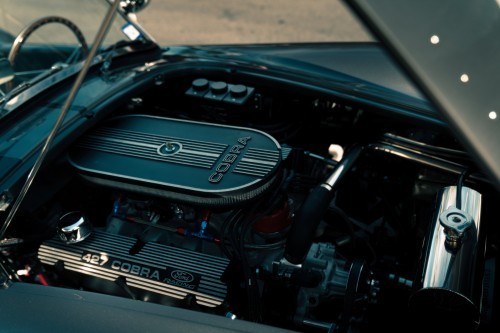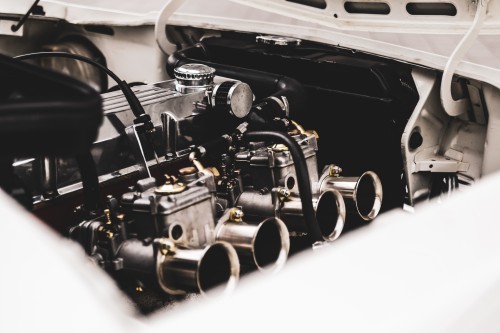With its reputation for fine engineering and thrilling performance, BMW has cemented a particular place in the hearts of car fans everywhere. BMW’s reputation is heavily anchored in the ability to create great engines, in addition to its recognizable kidney grilles and svelte styling. Even though BMW has a long history of creating high-performance engines, not all engines are equally reliable.
Importance of engine reliability in a BMW:
It is impossible to stress how crucial a BMW’s engine dependability is to the whole ownership experience and the brand’s reputation for excellence. Here are a few major justifications for why a BMW’s engine dependability is crucial:
- Preservation of Performance: BMWs are famous for their thrilling driving experiences and powerful performance. An unstable engine might jeopardize the performance’s consistency as well as its power. The “Ultimate Driving Machine” experience may be fully appreciated by enthusiasts thanks to a dependable engine that guarantees the car continuously provides the claimed power and driving characteristics.
- Ownership Satisfaction: Owning a BMW sometimes requires a large financial investment. Customers anticipate that their investment will provide them with a sense of satisfaction, assurance, and tranquility. A dependable engine reduces the possibility of unanticipated failures and repairs, raising total BMW ownership pleasure.

- Resale Value: For many BMW owners, resale value is a crucial factor. In the used automobile market, cars with a reputation for reliable engines typically hold their value better. A dependable engine may increase a BMW’s appeal to potential purchasers, ensuring that its appeal endures over time.
- Reduced Maintenance Costs: Costs of maintenance are directly influenced by reliability. A reliable engine is less prone to experience significant problems that call for costly maintenance. Lower maintenance expenses help make buying and keeping a BMW more affordable overall.
- Brand Image and Trust: Based on precise engineering and performance, BMW has developed a strong brand reputation. Fundamental to this picture is the dependability of the engines. A record of accomplishment of dependability strengthens consumer confidence in the brand and draws in both ardent supporters and new ones.
- Safety: Safety and engine dependability are strongly related. Unexpected failures brought on by an unstable engine might jeopardize the safety of the car and its passengers. The safety of the driver and passengers depends on the engine running perfectly.
- Longevity: Many BMW fans hold onto their vehicles for years or even decades. For long-term durability and good mileage, a dependable engine is essential. It enables owners to enjoy their BMWs for longer, leading to them frequently turning into beloved classics.
The Criteria for Reliability:
BMW engines’ reliability is complicated and depends on many variables. Several crucial factors must be considered to evaluate engine dependability effectively:
Design and Engineering:
- Build Quality: Engine dependability is significantly influenced by the caliber of the raw materials and the accuracy of the production process. A sturdy engine is a result of precision engineering and high-quality parts.
- Simplicity: Simpler engine designs frequently feature fewer potentially defective parts. An uncomplicated design can increase dependability.
- Advanced Technology: Even while contemporary technology like sophisticated materials and production techniques are crucial when used properly, they may also increase dependability.
Regular Maintenance:
- Service Intervals: The numerous engine components that need to be inspected, replaced, or serviced are listed in the maintenance schedules that BMW publishes. For dependability, adherence to these intervals is essential.
- Oil and Fluid Changes: To avoid wear and tear, decrease friction, and ensure maximum engine efficiency, regular oil and fluid changes are necessary.

Known Issues and Recalls:
- Historical Reliability: A single engine’s dependability may be determined by looking at its past for known faults, recalls, or frequent difficulties.
- Recalls and Fixes: In assessing overall reliability, BMW’s responsiveness to detected issues, such as issuing recalls and delivering solutions, is crucial.
Owner Maintenance and Driving Habits:
- Owner Responsibility: Engine dependability may be significantly impacted by an owner’s driving habits and maintenance practices for their BMW. Careful maintenance, frequent inspections, and cautious driving are beneficial.
- Driving Style: Premature engine wear and poor reliability can be brought on by aggressive driving, extended periods of idling, and carelessness.
Warranty and Support:
- Manufacturer’s Warranty: The duration and conditions of BMW’s factory warranty might give customers confidence in the dependability of the engine. A robust warranty demonstrates the brand’s faith in its engines.
- Dealer Support: Engine dependability may be impacted by accessibility to skilled technicians and authorized BMW service centers. Expert upkeep and prompt repairs are crucial.
Most Reliable BMW Engines:
BMW has created several renowned engines that have forever changed the automobile industry. These engines are lauded for their effectiveness, longevity, and historical significance for the company. Here are a few renowned BMW engines:
- BMW M30 Inline-6: One of BMW’s original inline-6 engines, the M30 engine debuted in the late 1960s and ran a variety of BMW vehicles for many years. A classic option for luxury and sports automobiles, such as the storied BMW E9 coupe and E24 6 Series, because of its reliable performance.
- BMW S14 Inline-4: The classic BMW E30 M3 was propelled by the S14 engine, which evolved from the M10 block. The S14 is a representation of BMW’s commitment to high-performance road vehicles and motorsport because of its fast-revving nature and energetic performance.
- BMW S50/S52 Inline-6: The BMW E36 M3’s S50 and S52 engines are renowned for their well-balanced performance and high rate of revving. They were fun to drive and were highly regarded by fans.
- BMW S70/2 V12: One of BMW’s most illustrious engines in history, the S70/2 V12 was built for the renowned BMW McLaren F1 supercar. It established multiple speed records and is still an engineering wonder because of its naturally aspirated configuration and high-reserving capabilities.
- BMW S54 Inline-6: The S54 engine that powers the BMW E46 M3 is noted for its strong output and high-revving nature. It is regarded as one of the best naturally aspirated engines that BMW has ever developed.
- BMW M88 Inline-6: As the first engine produced by the M division, the M88 engine, which debuted in the BMW M1, is important. It demonstrated BMW’s expertise in producing powerful engines and laid the groundwork for upcoming M engines.
- BMW N54 Inline-6: The N54 engine is notable for its use of twin-turbocharging, which signaled a change in how BMW approached performance and can be found in many BMW models, including the 1 Series, 3 Series, and 5 Series. It is renowned for its capacity for the tune and powerful power output.
- BMW M20 Inline-6: The M20 engine is praised for its extended lifespan and frequent use in many BMW vehicles. It is beloved by fans of vintage BMW vehicles and is frequently recognized as one of the brand’s most dependable engines.

Maintenance and Ownership Tips:
Regular maintenance and prudent ownership practices are required to maintain a BMW for long-term performance and reliability. For BMW fans, the following maintenance and ownership advice:
Follow the Maintenance Schedule:
- Follow the maintenance regimen suggested by BMW as described in the owner’s handbook. The durability and dependability of the engine in your BMW depend on routine maintenance.
Choose a Certified BMW Service Center:
- Choose BMW-authorized service facilities with qualified professionals who are certified to operate BMW vehicles. The most recent diagnostic equipment and authentic BMW components are available to them.
Regular Oil Changes:
- At the appropriate intervals, replace the engine oil. For BMW engines, premium synthetic oil is necessary. Between oil changes, make sure to routinely check the oil level, especially if your BMW has a high-performance engine that might use extra oil.
Fluid Checks and Changes:
- According to BMW’s guidelines, you should routinely check and replace other important fluids including coolant, gearbox fluid, brake fluid, and power steering fluid.
Tire Maintenance:
- To promote even Tyre wear and best handling, maintain correct Tyre pressure, alignment, and rotation. Spend money on high-quality Tyres appropriate for the model and driving style of your BMW.
Brake Inspection:
- Check the brake discs and pads to wear regularly and replace them as needed. Brakes that work properly are essential for performance and safety.
Fuel Quality:
- Use premium-grade, high-quality gasoline with the specified octane rating for the engine in your BMW. Poor fuel quality can have an impact on an engine’s efficiency and performance.
Keep it Clean:
- Waxing and regularly washing your BMW will help preserve the outside appearance. To keep the cabins comfortable and attractive, clean the inside.
Frequently Asked Questions (FAQs):
What is the most dependable engine produced by BMW?
The M54B30, a 3.0-liter inline-6 engine, is one of BMW’s most dependable motors.
Is the 3-liter diesel engine in the BMW dependable?
Yes, the 3.0-liter diesel engine in BMW is renowned for being dependable.
What BMW has an effective engine?
Many BMW models come with strong, high-performance engines that are renowned for their ability to produce thrilling driving experiences, but the BMW M3 stands out as one noticeable exception.
How reliable is the BMW 1.5 3-cylinder engine?
For BMW’s smallest models, the 1.5-liter 3-cylinder engine is a solid option due to its reputation for dependability and economy.
Conclusion:
In conclusion, BMW’s journey through the world of engines has been a remarkable one, marked by a legacy of legendary powerplants that have defined the brand’s commitment to performance, precision engineering, and reliability. From classic inline-6 engines that powered iconic models to the innovative powertrains of today, BMW has consistently pushed the boundaries of what is possible in automotive design.

